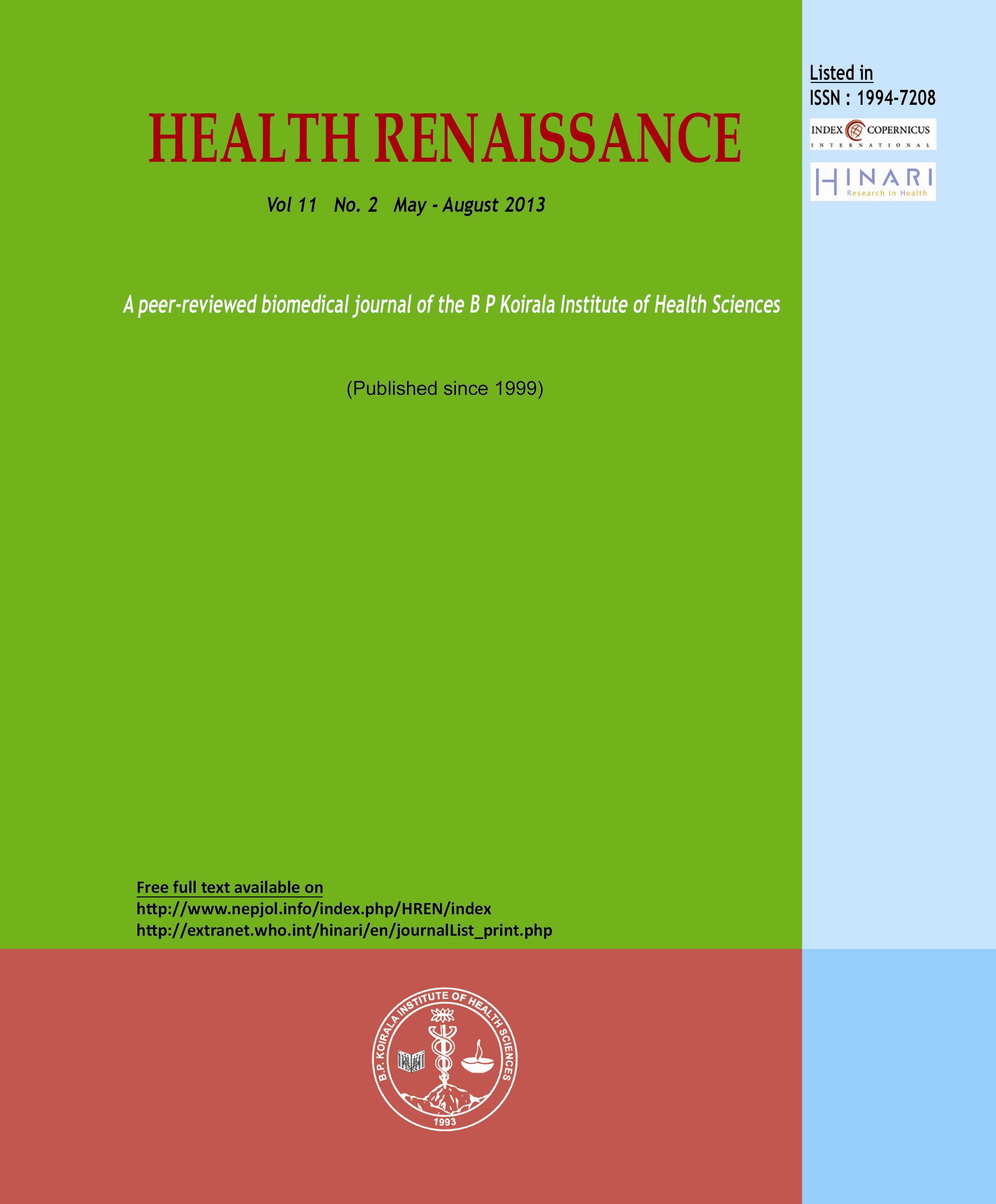Study of efficacy of intravenous iron sucrose therapy in iron deficiency anaemia of pregnancy
DOI:
https://doi.org/10.3126/hren.v11i2.8216Keywords:
iron sucrose, iron deficiency anaemia, antenatal womenAbstract
Background: Anaemia is the most common medical disorder in pregnancy and is responsible for higher of the maternal deaths in the developing countries.
Objective: To determine the efficacy of intravenous iron sucrose, in anemic pregnant women, presenting at Mamata General Hospital, Khammam.
Methods: Fifty patients with proved iron deficiency anemia having haemoglobin between 8-10gm% were included in the study. Total iron deficit was calculated by standard formula. Target haemoglobin to be achieved was 11gm%. Iron sucrose was administered by intravenous infusion in divided doses. Haemoglobin was repeated 3 weeks after the last dose of intravenous iron sucrose. Gestational Age, Socio economic class distribution was calculated in percentage , Pre and post treatment Hb% was calculated by mean and standard deviation and P-value was Assessed.
Results: Majority of the patients i.e. 60% had gestational age between 32-34 weeks, 30% were in between 29-31 weeks of gestational age while 10% were between 26-28 weeks gestation. The Mean gestational age was 32.4±2.7. Distribution of cases by socio economic status showed, 40% belonged to lower class, 32% belonged to middle class and 28% were from upper class. Intravenous iron sucrose therapy was effective in 90% of the patients without any side effects. There were no allergic reactions.
Conclusion: This study showed a significant improvement in the haemoglobin of the patients who received iron sucrose infusion. Patients achieved the target of 11 gram % haemoglobin. It was safe and well tolerated.
Health Renaissance, January-April 2013; Vol. 11 No.1; 107-110




